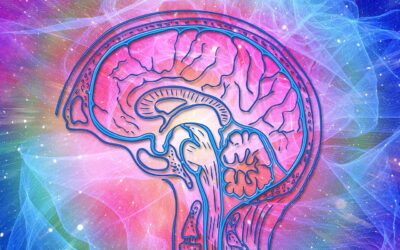Martin Luther King Jr. Quotes: Timeless Wisdom for Justice, Equality, and Human Dignity

Martin Luther King Jr., a central figure in the American civil rights movement, is celebrated not only for his leadership but also for his eloquence and ability to inspire through words. His speeches, sermons, and writings reflect a deep commitment to justice, equality, and nonviolence. King’s words continue to resonate today, offering timeless lessons on how to live with compassion, fight against injustice, and strive for a better world.
In this article, we’ll explore some of Martin Luther King Jr.’s most powerful and inspiring quotes, delving into their meaning and relevance in today’s world. These quotes provide a lens through which we can examine our own lives and societal challenges while encouraging us to continue pursuing justice, equality, and peace.
“Injustice anywhere is a threat to justice everywhere.”
This quote, from King’s famous “Letter from Birmingham Jail,” underscores his belief in the interconnectedness of justice. He argued that oppression or discrimination in one part of the world—or even in one community—ultimately affects everyone. King was a staunch advocate of solidarity, emphasizing that as long as one person or group is oppressed, justice cannot truly be realized for anyone.
This message remains deeply relevant today, especially in a globalized world where issues like systemic racism, inequality, and human rights violations cross borders. King’s quote challenges us to recognize that fighting for justice isn’t just about our immediate environment; it’s about taking action wherever injustice occurs, knowing that it impacts the broader fabric of humanity.
Key Takeaway:
The fight for justice must be collective. When one group is oppressed, it threatens the freedom and dignity of all people.
“The time is always right to do what is right.”
King’s words here call for immediate action when it comes to confronting injustice. He believed that there is never a “wrong” time to stand up for what is right—whether that means speaking out against inequality, supporting marginalized groups, or engaging in nonviolent protest. King’s emphasis on moral urgency resonates in moments of social and political upheaval, where waiting for the “perfect” time to act often becomes an excuse for inaction.
This quote reminds us that hesitation or delay in doing what is just can perpetuate systems of inequality. King’s call to act now rather than waiting for more favorable conditions is an enduring lesson in moral responsibility.
Key Takeaway:
Don’t wait for the “right moment” to stand up for justice and equality. The time to act with integrity and courage is always now.
“Darkness cannot drive out darkness; only light can do that. Hate cannot drive out hate; only love can do that.”
One of Martin Luther King Jr.’s most well-known quotes, this message speaks to his philosophy of nonviolence and love as the most effective tools for change. King believed deeply in the transformative power of love and compassion, even in the face of hatred and violence. He argued that responding to hate with hate only perpetuates a cycle of anger and division, whereas love and understanding have the potential to heal and unite.
This quote is central to King’s vision for a nonviolent movement. Instead of seeking revenge or retaliation, King taught that love could create a more just and peaceful world. His commitment to this philosophy was not just theoretical—it was practical, as he and his followers faced extreme violence with unwavering commitment to peace.
Key Takeaway:
Love and nonviolence are the most powerful forces for change. Responding to hate with love breaks the cycle of violence and leads to true justice.
“Life’s most persistent and urgent question is, ‘What are you doing for others?'”
This quote encapsulates King’s belief in service to others as a core value of a meaningful life. Throughout his life, King championed the idea that our actions should be focused not on self-gain but on improving the lives of others, particularly those who are marginalized or suffering from injustice. This quote challenges us to consider our own role in contributing to the greater good and reminds us that a just society is built on compassion and service.
King’s call to action here is timeless. It asks each of us to examine how we contribute to making the world a better place—whether through activism, charity, volunteering, or simply by treating others with kindness and respect.
Key Takeaway:
True fulfillment comes from serving others. By focusing on how you can help those around you, you contribute to creating a more compassionate and just world.
“Faith is taking the first step even when you don’t see the whole staircase.”
This quote speaks to King’s deep belief in faith, not just in a religious sense, but also as a guiding principle for action in the face of uncertainty. King understood that change often requires courage to move forward without knowing exactly how things will unfold. He encouraged his followers to take that first step toward justice, even if the outcome wasn’t clear, trusting that progress would be made along the way.
This message is particularly relevant when confronting large, seemingly insurmountable challenges—whether personal or societal. King’s faith in the moral arc of the universe bending toward justice was grounded in action, teaching us that sometimes we must move forward with conviction, even without guarantees.
Key Takeaway:
Trust in the process of positive change. Even when the path isn’t clear, take the first step with faith that justice and progress will follow.
“I have decided to stick with love. Hate is too great a burden to bear.”
In this quote, King acknowledges that while hate may seem like a natural response to injustice and oppression, it ultimately harms the person who harbors it more than anyone else. Love, on the other hand, is a freeing, empowering force that fuels the pursuit of justice. King’s choice to embrace love over hate, even in the face of extreme hostility, was not only a personal decision but also a strategic one that defined the civil rights movement’s success.
By rejecting hate, King was able to foster a movement that focused on healing, reconciliation, and progress, rather than retaliation or division. His words remind us that choosing love is not a sign of weakness, but a powerful and necessary step in building a better world.
Key Takeaway:
Choosing love over hate is a powerful act of strength. Love creates unity, while hate only perpetuates division and pain.
“Our lives begin to end the day we become silent about things that matter.”
This quote highlights the importance of speaking out against injustice, even when it’s uncomfortable or difficult. For King, silence in the face of oppression was equivalent to complicity. He believed that to create a just and equitable society, it was essential for everyone to voice their concerns and stand up for what is right.
This quote serves as a call to action for individuals who may feel powerless in the face of injustice. King reminds us that silence is not neutrality—it is a failure to act when action is needed most. To live with purpose and integrity, we must raise our voices against wrongs and advocate for change.
Key Takeaway:
Remaining silent in the face of injustice only perpetuates it. To live a meaningful life, you must speak out and stand up for what is right.
“We must accept finite disappointment, but never lose infinite hope.”
King’s quote speaks to the resilience and optimism necessary in the fight for justice. He recognized that setbacks and disappointments are inevitable, but they should never be allowed to extinguish the hope for a better future. Hope, in King’s view, was not a passive feeling but an active commitment to continue striving for justice, even when the path forward was unclear or difficult.
This quote serves as a reminder that while progress may be slow and victories hard-won, hope is the fuel that keeps movements alive. By maintaining hope, we commit to a better future, even when faced with obstacles.
Key Takeaway:
Disappointments are temporary, but hope is everlasting. Keep your vision of a better world alive by holding on to hope, even in challenging times.
“The arc of the moral universe is long, but it bends toward justice.”
Perhaps one of King’s most enduring quotes, this phrase reflects his deep faith in the eventual triumph of justice. He acknowledged that while progress may be slow and the fight for equality arduous, justice is inevitable if we continue to work for it. King’s words have been invoked countless times as a reminder that while social change may not happen overnight, persistent efforts toward justice will ultimately succeed.
This quote empowers those working for justice to remain committed, even when progress feels slow. King reminds us that the journey toward justice requires patience, persistence, and unwavering belief in the righteousness of the cause.
Key Takeaway:
Justice may take time, but it is inevitable. Stay committed to the cause, knowing that your efforts will contribute to a more just and equitable world.
The Enduring Power of King’s Words
Martin Luther King Jr.’s quotes continue to inspire and empower individuals worldwide. His eloquent words encapsulate the values of love, justice, faith, and service that remain essential in the pursuit of a better world. King’s vision of a society rooted in equality and nonviolence is as relevant today as it was during the civil rights movement, reminding us that each of us has a role to play in creating a more just and compassionate world.
By reflecting on these quotes, we can draw strength, courage, and wisdom to address the challenges of our time. King’s legacy lives on not only through the historical impact he made but through the timeless truths expressed in his words.









